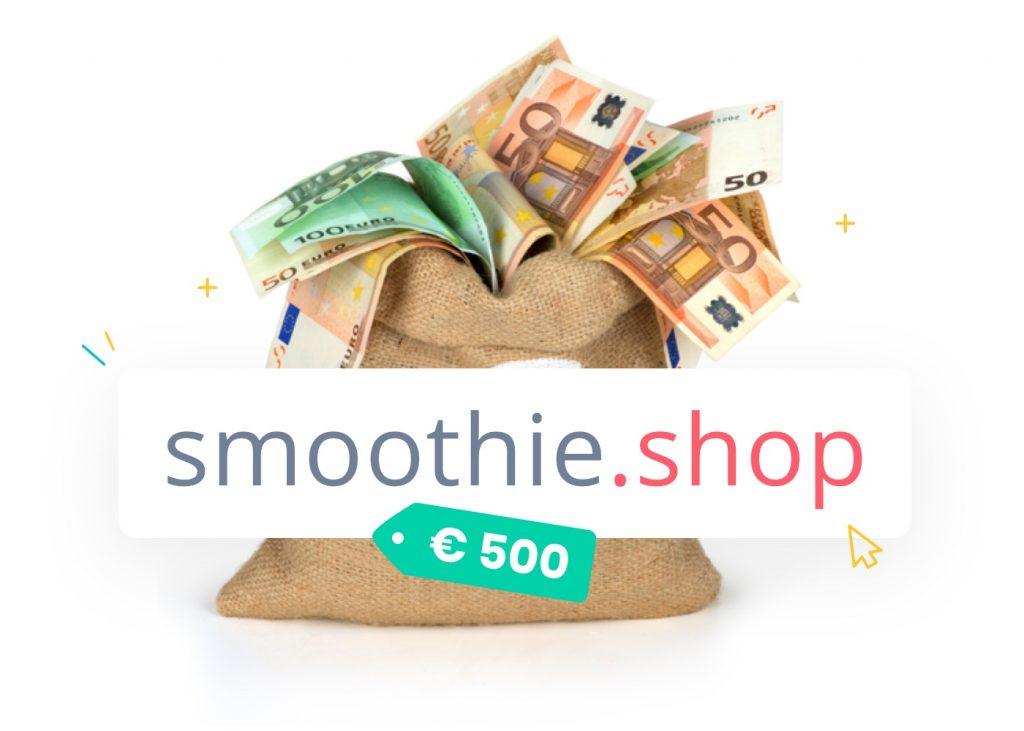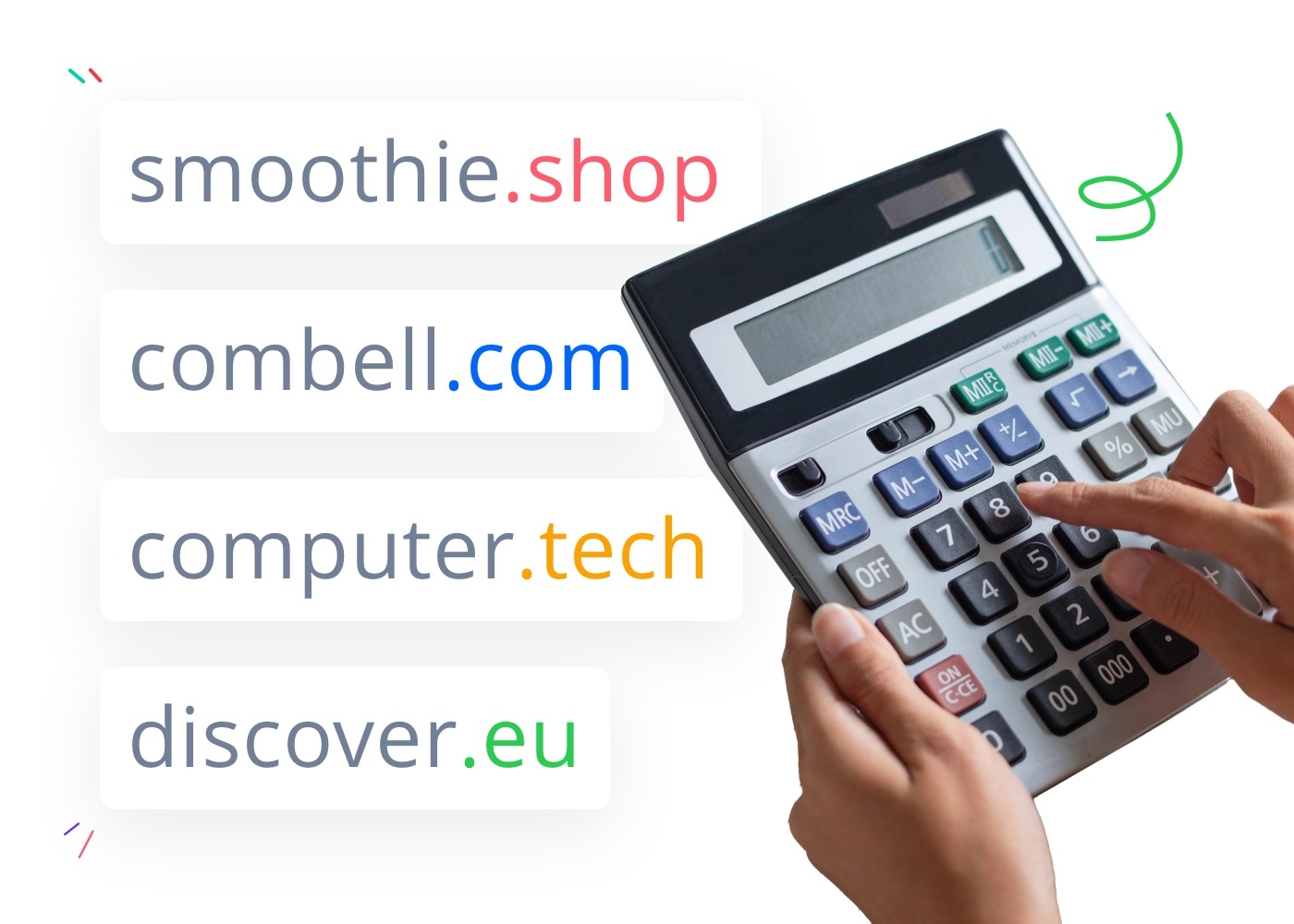Why selling your domain name might not be such a bad idea

Making money online: there's a good chance that e-commerce and bitcoins are the first things that come to mind. However, buying and selling domain names is just as much a way to earn some extra cash. Domain trading is big business – will you take your chance?
Why do people sell domain names?
A good question! The primary reason to sell a domain name is simple: you can make money from it. To give you an example: if you had owned the domain name Hout.nl, you could have sold it for an impressive €30,000 in 2023.
Some well-funded companies are willing to go far to purchase the perfect domain name. Selling a specific domain could earn you a substantial sum. This isn't surprising, since in the highly competitive e-commerce world, a good domain name can make all the difference.
An online store with a short, clear domain name is more likely to rank well in search engines and stays top of mind with (new) customers. Not to mention the vast opportunities it creates in terms of branding and marketing. It's crucial to register a domain name that perfectly matches your brand.
Tip
Create a unique business name with this business name generator.
Keep your expectations in check
The most sought-after domain names in the world, such as Insurance.com and VacationRentals.com, were sold for staggering amounts—$35.6 million and $35 million, respectively. In 2017, Elon Musk, the CEO of Tesla, paid $5 million to reacquire the domain X.com, which he later redirected to Twitter.com.
But let’s be realistic—the chances of Musk paying anything close to that for domains like bakerboris.be or gardencarejohn.be are slim to none. It’s important to keep your expectations grounded. While there is indeed money to be made in selling domains, don’t expect multi-million dollar offers. The most valuable domains were snapped up long ago and are unlikely to ever be available again.
Even though you may have missed that wave, there’s still potential for profit. For example, you could easily sell a domain you purchased for €40 and flip it for €100, netting a €60 profit. It may not be millions, but it’s still a solid return.
Other reasons to sell a domain name
Money isn’t the only motivation for domain owners to sell. Other common reasons include:

How do I sell my domain name?
The so-called "domain name trading" or domain name sales industry is a world of its own. It's important to thoroughly understand it before diving into buying and selling domain names.
Selling a domain name involves the process of transferring the ownership rights of a registered domain from one party (the seller) to another party (the buyer) in exchange for an agreed-upon fee.
Once the sale is completed, the domain name registration is officially transferred to the new owner through a registrar, such as Combell, which manages the domain.
This process usually includes both legal and technical steps (such as transferring the domain) to ensure the domain is securely handed over to the buyer.
How to buy and sell a domain name
There are several ways to buy and sell domain names:
A buyer interested in a domain name can contact the domain owner directly.
In many cases, you can find the domain holder's name and contact details through the WHOIS database. If the owner is willing to sell, price negotiations can begin right away.
No market exists without a marketplace! You can list your domain name on specialized platforms where you can reach thousands of potential buyers.
On these platforms, buyers and sellers can bid, negotiate, and finalize sales. Many of these platforms also operate as auction sites.
Well-known platforms: Sedo, TBforum, and Sitedeals.
A domain broker acts as a middleman who helps you find buyers. Brokers handle price negotiations and manage the technical transfer of the domain.
Thanks to their extensive networks, brokers can often secure sales quickly. However, keep in mind that these services typically work on a commission basis.
Well-known brokers: Sedo, VPN, and Grit Brokerage.
Sell your domain at the right price
If you're looking to sell a domain name, it’s crucial to set the right price. But how do you determine the exact value of your domain? There are several ways to assess its worth.
Factors that influence a domain’s value:
A comprehensive analysis of these six key factors plays a significant role in determining the value of a domain name.
1️⃣ How relevant is the domain?
The relevance and keywords associated with the domain’s industry are critical. By researching which keywords are trending and in demand, you can gauge the domain's relevance and appeal.
2️⃣ What about length and readability?
Shorter is usually better. A good domain name is often short, memorable, and easy to spell. Spelling and pronunciation also play a significant role in making the domain more attractive.
3️⃣ Does it have strong branding potential?
This factor evaluates the domain’s potential to become a recognizable brand. Ideally, a domain should have the potential to develop into a strong, distinctive brand, thanks to its uniqueness and market appeal.
4️⃣ Does the domain attract traffic?
This involves analyzing the amount of traffic the domain generates and its history, including previous activity and rankings on search engines like Google.
5️⃣ What domain extension is used?
Certain extensions (such as .com, .net, .org) are often considered more valuable than others. However, alternative or creative extensions can make a domain unique, meaning your choice of extension can significantly impact the domain’s value.
6️⃣ What’s the market demand?
Understanding current market trends and analyzing the demand for certain types of domain names is crucial in determining how much your domain might be worth.

Ways to determine the value of your domain name
Start by researching recently sold domains similar to yours. By analyzing the sale prices of domains in the same industry, with similar lengths or keywords, you can estimate the potential value of your domain.
If you're unsure, consider hiring a domain expert or broker to conduct the valuation on your behalf. These professionals have a clear understanding of current market trends and can provide a more personalized and strategic valuation for your domain.
Domains with relevant keywords can be more valuable due to their potential for search engine optimization (SEO).
Tools like Google Keyword Planner or Ahrefs can help you analyze search volume and competition for keywords in your domain, giving you a good sense of its potential worth.

You can estimate your domain’s value by using a domain value calculator. These tools rely on algorithms and available data to provide a rough estimate of your domain’s worth.
Keep in mind, however, that these calculators are simply a guide. Because domain value can be influenced by subjective factors—like current market conditions—the result is only an approximation, not a definitive valuation.
Tip
Things to keep in mind
Selling a valuable domain can only be successful if you are the rightful owner of the domain and have properly configured the DNS settings. These are just a few of the potential pitfalls to be aware of.
For example, if your domain name conflicts with a trademark or a registered brand, it can be very difficult to sell it to an interested buyer. Trademark disputes could halt the transaction entirely.
Additionally, pricing is something you need to monitor carefully. If you ask too little, you might lose out on potential profit, but if you ask too much, you risk scaring away buyers.

Watch out for scams
When dealing with potential buyers, make sure to gather enough information about the other party. Scams are a common issue in the domain trading world. To protect yourself, use an escrow service to handle the financial transaction securely, and be cautious of phishing attempts or fraud.
Once the sale is complete, the transfer process—both administrative and technical—should go smoothly. Ensure that all agreements, like DNS settings, are fully resolved. DNS (Domain Name System) settings link the domain name to the correct server and IP address, guiding users to the right website or service.
Also read
How to transfer your domain to Combell.
Selling a domain starts with the purchase itself!
When selling a domain, it's essential to make it appealing to potential buyers. This means ensuring the name is short, relevant, and easy to remember, with a focus on popular keywords or strong branding potential.
Effective marketing and promotion are also crucial. Listing your domain on specialized platforms like Sedo or Afternic and using social media to broaden your reach can increase visibility. You can also strategically use domain auctions or directly approach buyers in specific industries.
During negotiations, knowing the value of your domain is key. This helps you set a reasonable asking price and puts you in a strong position for negotiation. A proper valuation can streamline the process and increase your chances of a successful sale.
What are you waiting for?


